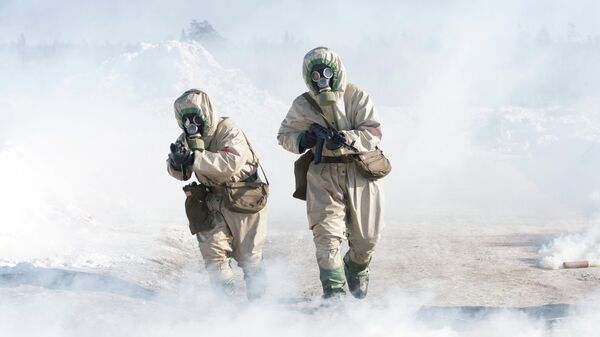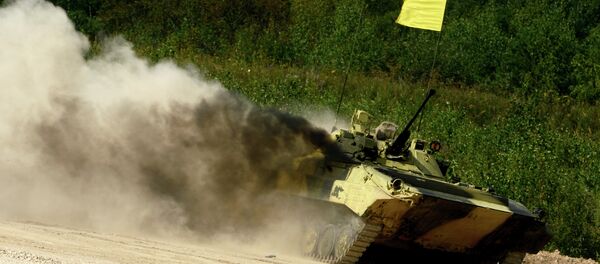The ‘critical facility’ is a term used by specialists to describe a large military airfield, army headquarters and control bases, bridges of strategic importance, electric stations and other vital military infrastructure.
These are primary targets during enemy rocket or bomb attacks. That is why armed forces continually develop new and sometimes untraditional methods of safeguarding important facilities. One such method was tested in the Samara region.
“Using the spray mixture and hydro gaseous equipment installed in vehicles on GAZ-66 base, army corps managed to spray a gas cloud on an area of two and a half kilometers which for 5 hours made the critical facility invisible to the naked eye and also for scanning in thermal and other spectra,” said the head of press service of the Central Military District, Jaroslav Roschupki, in an interview for website ‘RG’.
The chemical composition of the cloud has special properties. When it is dissipated the cloud merges with the atmosphere and to someone who is looking at it from a distance, it would give off the appearance of a completely empty space.
The hydro gaseous apparatus is designated TDA-2K and it can cover the ground for up to ten hours. Most importantly with this chemical it is actually possible to camouflage stationary and moving objects.
Once TDA-2K is dispersed, no radar is able to detect tanks, armored vehicles, self-propelled artillery or rocket launchers, travelling up to a a speed of 40 kilometers per hour.



